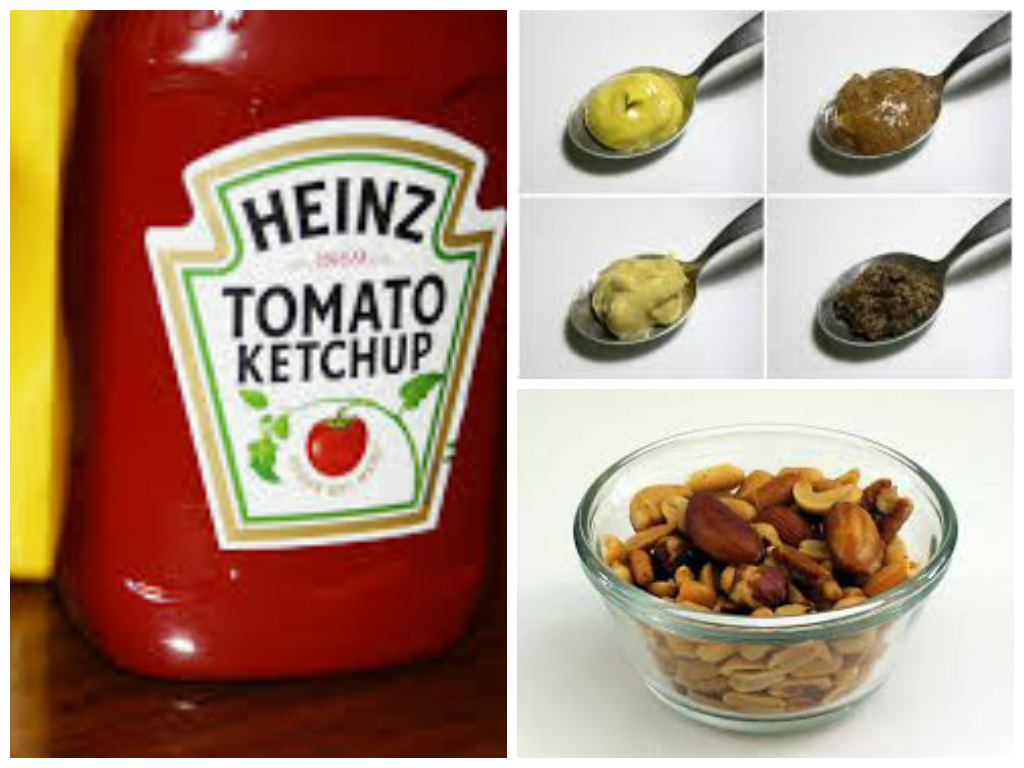One of the most difficult problems posed by GMOs is their stealthiness, which is to say that it can be extraordinarily tough to tell whether or not they’re in various food products without being labeled.
Many people have been buying the same everyday products for years, not realizing how much the ingredients have changed and that they now include GMOs and other unnatural, unhealthy ingredients.
Other times, products are cleverly labeled (or ingredients are not labeled) in order to obscure potential sources of these ingredients even more.
The following list is comprised mostly of food items people eat on a consistent basis, that seem as though there’s no need for genetically engineered ingredients (of course, today’s food companies disagree, which is why it’s so important to stop buying their products and to stop believing their lies).
Here are six common food items most people probably don’t realize contain GMOs:
1. Mustard- Most major brands of mustard contain vinegar, which a lot of people would be surprised to find contains GMOs.
That’s because vinegar is often made from corn, and while it’s labeled “natural” when sold separately, that doesn’t mean it’s true.
In fact, the Heinz company was recently sued over false “all-natural” claims considering that it is likely using GM corn.
If you want to avoid GMOs in your mustard, look for an organic brand at the health food store (and use those coupons) or make your own.
2. Mixed Nuts- It might not make much sense from a logical standpoint, but many brands of mixed nuts unfortunately contain things like soy oil, corn-based additives and much more.
When buying nuts in bulk or from the health food store you’ll notice these unnecessary additives are lacking, but they’re present in many of the major brands such as Planters. Keep a close eye on those ingredients lists and write the companies if you find something you don’t like.
3. Ketchup- Another product deceptively sold as natural in some cases, Heinz’s “all-natural” ketchup removes the high fructose corn syrup, which is a plus, but adds back in “sugar.”
Considering that the vast majority of all sugar beets in the U.S. are genetically modified to withstand large Roundup sprayings there’s a good chance this “all-natural ketchup” contains GMOs.
Other brands of ketchup use GM sweeteners such as these as well, so consider making your own from your extra garden tomatoes, or buying organic.
4. Olive Oil- One of the healthiest oils on the market as long as you don’t use it to cook at high temperatures, olive oil is a staple of a healthy Mediterranean style diet.
It can even help protect your body against a particularly nasty type of damage done by GMOs according to one recent study.
Olives themselves are not genetically modified, but here’s the tricky part: some olive oil brands in the U.S. especially are adulterated with less-than-healthy GM oils like soy and canola.
If you’re buying olive oil and want to avoid GMOs, buy imported from places like Italy (where you can actually go to jail for multiple years for planting them) or Tunisia.
If buying U.S. olive oil, look for 100% organic and research the company to be sure they don’t add GM “junk oils” to the mix. Learn more about fake foods being adulterated, or passed off as the real thing (including olive oil) in this article.
5. Granola Bars- As with most food items in general it’s a lot better to make your own in this case, or buy from a trustworthy organic company such as Nature’s Path.
Stay far, far away from “conventional” granola bars, especially Nature Valley which despite its marketing presence actually contains ingredients that are almost certainly genetically engineered.
6. Soda with “Real Sugar”- Another clever marketing ploy, the use of “real sugar” in Pepsi drinks almost certainly contains GM beet sugar, as do other similar sodas that have switched back to sugar.
One consumer emailed Pepsi during their rollout of the “natural” Sierra Mist to determine if they were using non-GM sugar and received a vague letter stating that they could not verify whether it was non-GMO or not.
Again, considering the sheer statistics of the situation, it’s a safe bet that “real sugar” equals genetically modified sugar.
Welcome to the 21st century, folks, where “real sugar” comes from sugar beets that have been gene spliced in a lab to withstand huge doses of carcinogenic pesticides.
We’re working to change all that, but in the meantime, keep reading those ingredients lists and keep telling companies you don’t want GMOs in your food and it’ll all get better soon.
This article was first written in 2014 and updated in November 2017. For more articles like these in your inbox, subscribe to our newsletter by clicking here.
Thanks for installing the Bottom of every post plugin by Corey Salzano. Contact me if you need custom WordPress plugins or website design.





